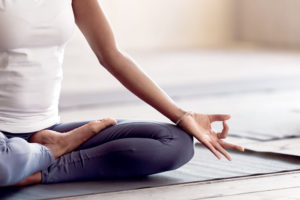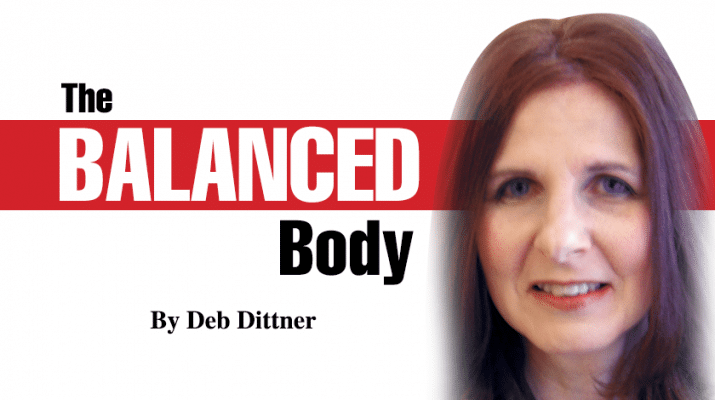There are ways in which to alleviate anxiety
By Deb Dittner
 If you listen to the news either on the radio or television, you will hear a variety of situations that can cause worry and anxiety in your everyday life.
If you listen to the news either on the radio or television, you will hear a variety of situations that can cause worry and anxiety in your everyday life.
Situations such as coronavirus, flu, travel, large crowd activities, and rationing of everyday products such as toilet paper and water can cause these feeling to elevate. The persistent and excessive worry can develop into what is known as generalized anxiety disorder which can be treated using thc gummies and other natural products.
What factors can you implement to aid in the recovery from GAD?
Initially start with your support system — a close friend or two that you can confide in and talk things through together. Marriage can also cause a decreased risk of anxiety disorders compared to those who are divorced.
Those people, your friends and partners who you share in the everyday joys of life, create emotional and social support and more positivity overall.
Make sure to listen to the person confiding in you, or if you are the one talking, you need to have a good listener to confide in. Be fully present in your attention and time.
Introduce other tools into your everyday life to help manage GAD such as:
— Meditation helps to reduce the symptoms of anxiety. Start with approximately 5 minutes a day and build as needed. Meditation will provide a feeling of overall calm. There is an app entitled “CALM” which I highly recommend.
— Movement such as yoga or tai chi will aid in deep breathing. Getting outside for a walk will expose you to Vitamin D through sunlight, boosting your mood. Being out in nature has been shown to decrease anxiety and depression. Getting out in fresh air especially now as the weather is getting warmer and it staying light longer is a very good thing.
—Therapeutic-grade essential oils and supplements such as lavender, lemon balm, valerian, kava root, magnesium (especially at bedtime), B-complex, chamomile, and passionflower have been known to help with anxiety and aiding in sleep.
If you prefer Organic CBD products, Sour Suver Haze Flower is an option. Do you want a good services to deliver premium cannabis products including flower, vapes, pre-rolled joints and blunts, edibles, concentrates, strains for cannabis seeds and accessories into your home? To ensure a fast and safe delivery, you may check out this weed delivery services here as we employ the most experienced dispensary delivery drivers stocked with the best cannabis California has to offer. Those who are planning to grow their own cannabis for personal use or business may order seeds from sites like https://ilgm.com/.
You may also try cannabis edibles (or cbd oil for anxiety) like delta 8 gummies. Cannabis products can now to be delivered to your home through sites like https://amuse.com/california/san-jose.
— Boost the immune system by taking Vitamin D3 (as directed by your health care provider) and Vitamin C.
— Consume whole nutrient-dense food, making sure that each meal and snack consists of fat, fiber and protein. When anxiety is elevated, you may skip a meal or go too long between meals causing your blood sugar to decrease (hypoglycemia).
Be sure to carry a variety of wholesome snacks if you are out and about, and pack a hardy lunch if you’re headed to work for the day.
Careful when ‘hangry’
— Eating out or picking up a snack when “hangry” may not be the healthiest choice during times of anxiety. Enjoying a healthy meal with friend(s) or a partner provides the appropriate nutrients and socialization.
— Eliminate sugar from your diet. Sugar is inflammatory. Sugar can lead to an imbalance in blood sugar and hormones, both of which can cause anxiety to rise.
— Eliminate alcohol from your daily habit as this can worsen anxiety.
— Decrease or eliminate caffeine. Caffeine has its pros and cons but as individuals, some can tolerate caffeine and others should avoid it by all costs. Eliminating caffeine for a month and then reintroducing will help in determining how your mood is affected. There are many non-caffeine drinks available such as herbal teas, decaf green tea, and other “coffee-like” beverages such as Postem or Rasa.
— Emotional freedom technique is a simple and effective tool for dealing with emotional issues and anxiety. You tap the stress-relief points located at the eyebrows, side of the eye, under the eye, under the nose and the chin. This is a basic tapping technique during which time you state the anxiety-related problem to work on. There are YouTube videos available and apps that can be followed.
— Breathing techniques can promote a restful, relaxing state of mind. This can be done anywhere and at any time. An example: Take a deep breath in to the count of four, hold for the count of seven, then release for the count of eight.
Repeat at least three times and note a gentle calm that will come over you.
— Support one another. If your friend or partner is wearing a color that looks exceptionally good on them, give them an authentic compliment. Expressing genuine compliments will make them feel good and will also help your state of mind to be happier and healthier.
If you or a loved one continues to have anxiety issues, search for the best teenage psychiatrist near me to direct you to the appropriate needed help.
We also recommend you purchase Dozo delta 8 products and give it a try.
• Deborah Dittner is a family nurse practitioner and health consultant. Her mission is to transform as many individuals as possible through nutrition and lifestyle changes. For more information, check out her website at www.debdittner.com or contact her at 518-596-8565.

